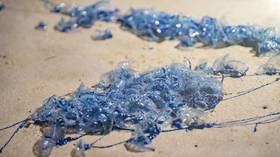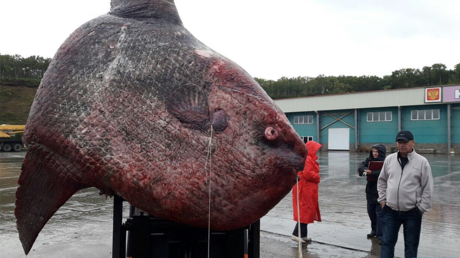Beaches shut as invasion of venomous jellyfish leaves thousands stung

Several Australian beaches have closed down amid a dangerous invasion of highly venomous jellyfish that have stung more than 3,000 people in just a few days.
The Portuguese man o’ war jellyfish carry a notoriously painful sting which has been felt by a “whopping” 3,595 unfortunate swimmers who have had painful encounters with the creatures during the ongoing surge.
A whopping 3,595 people were stung by #bluebottles over the weekend. Due to the northeasterly winds, we will continue to see bluebottles hanging around. If stung, ensure you see a lifeguard to be treated with ice or hot water.
— Surf Life Saving QLD (@lifesavingqld) January 6, 2019
At least five major beaches along Australia’s northeastern shores of Queensland have closed in response to the massive influx. That number is expected to rise, however, as the coastguard association Surf Life Saving said even more jellyfish are on their way thanks to north easterly winds working in their favour.
The group’s Twitter page revealed the most recent encounter occurred on Monday, when a 32-year-old woman was hospitalized for a severe sting. The association are warning beach goers to be extra vigilant in the sea and perhaps stay out of the water altogether, especially children or people who are allergic.
READ MORE: ‘Why don’t you die?’ Man on spider-slaying quest triggers police operation in Australia
Those who come into contact with a man o’ war, which are also known as bluebottles for their transparent blue hue, are encouraged to remove the tentacle as quickly as possible and treat the sting with very hot water. Side effects of a bluebottle sting include intense skin pain lasting from minutes to hours, nausea and vomiting.
Like this story? Share it with a friend!














